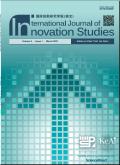非洲结构转型的治理:信息技术门槛
IF 5.3
Q2 MANAGEMENT
引用次数: 0
摘要
本研究考察了信息技术在治理动态对非洲结构转型影响中的相关性。本研究以非洲大陆41个国家为研究对象,使用2004 - 2021年的数据,采用交互式广义矩量法(GMM)作为实证策略。该方法旨在评估四种信息和通信技术(ICT)动态(即固定电话普及率、移动电话普及率、互联网普及率和固定宽带用户)如何调节十种捆绑和非捆绑治理动态以促进结构转型。调查结果取决于信息通信技术和治理动态。该研究强调了治理动态对结构转型的负面净效应,以及相应的ICT阈值,这些阈值对于完全抑制治理动态对结构转型的潜在负面净效应至关重要。所提供的信息和通信技术政策阈值在统计范围内,因此对决策者来说是值得的。讨论了政策影响。本文章由计算机程序翻译,如有差异,请以英文原文为准。
Governance for structural transformation in Africa: Information technology thresholds
This study examines the relevance of information technology in the effect of governance dynamics on structural transformation in Africa. The study focuses on 41 countries in the continent using data for the period 2004 to 2021, and the adopted empirical strategy is the interactive generalized method of moments (GMM). The methodology is tailored to assess how four information and communication technology (ICT) dynamics (i.e., fixed telephone penetration, mobile phone penetration, internet penetration, and fixed broadband subscriptions) moderate ten bundled and unbundled governance dynamics to boost structural transformation. The findings are contingent on ICT and governance dynamics. The study highlights the negative net effects of governance dynamics on structural transformation, as well as the corresponding ICT thresholds that are essential to completely dampen the underlying negative net effects of governance dynamics on structural transformation. The provided ICT policy thresholds are within the statistical range and are thus worthwhile for policy-makers. Policy implications are discussed.
求助全文
通过发布文献求助,成功后即可免费获取论文全文。
去求助
来源期刊

International Journal of Innovation Studies
Business, Management and Accounting-Strategy and Management
CiteScore
8.10
自引率
0.00%
发文量
23
审稿时长
19 weeks
 求助内容:
求助内容: 应助结果提醒方式:
应助结果提醒方式:


